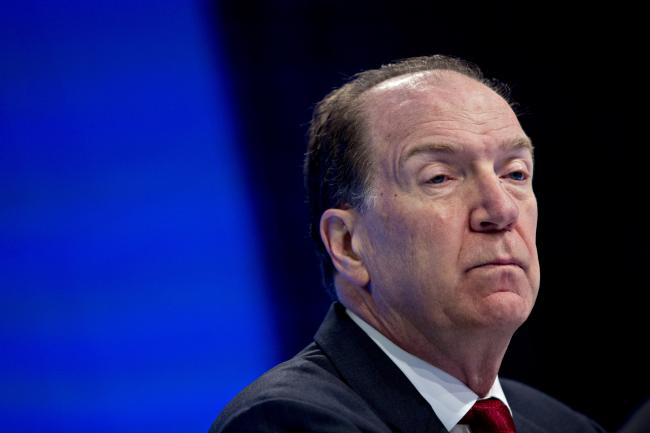(Bloomberg) -- Christine Lagarde’s premature exit from the International Monetary Fund would spark a fresh debate in global capitals over whether to maintain the tradition of appointing a European as its leader or look to an emerging market for the first time.
Since its founding in 1945, the Washington-based lender has always been run by a European as part of an unwritten understanding that means an American helms the World Bank. That arrangement lived on earlier this year when former U.S. Treasury official David Malpass became president of the World Bank.
But some nations have been pushing for a representative from emerging markets to take charge of the IMF to reflect the increasing power that nations such as China and India wield in the world economy.
That conversation will almost certainly start anew in coming days with the announcement that Lagarde is in line to become the next president of the European Central Bank and so would leave the IMF before her current term ends in 2021.
President Donald Trump and several of his key advisers have in the past criticized global institutions such as the IMF and questioned its call for more capital reserves. In a 2016 article, National Security Adviser John Bolton cited arguments for abolishing the fund.
That European governments swiftly endorsed Trump’s selection of Malpass may though mean the U.S. president is willing to back their choice for the IMF.
Lagarde said on Tuesday that she’s stepping aside from her IMF responsibilities during the nomination period. There was no announcement on who would replace her on an interim basis. “I am honored to have been nominated for the ECB presidency,” Lagarde said in a statement.
The selection process is managed by the IMF’s board of 24 executive directors, which represents its member countries and has in the past pledged to select managing directors based on merit and with a consensus vote. In reality, previous winners were first agreed between European governments and then rubber-stamped by the U.S.
When Lagarde was handed a second term in 2016 her candidacy went unopposed, but when she first sought the job in 2011 there were other contestants. Emerging economies failed to rally behind a single figure, allowing Lagarde to easily beat out Agustin Carstens, then Mexico’s central bank governor.
At the IMF, Lagarde has signed off on bailouts yet also sought to give emerging economies such as China more of a voice, while putting greater emphasis on issues including climate change and income and gender inequality. That has helped broaden the fund’s image beyond its reputation as an advocate of budget cuts and policies to liberalize countries’ economies.
She also repeatedly cited the U.S.-China trade war as a major risk to the global economy, a view at odds with the Trump administration which has said there’s no link between escalating tariffs and weaker growth in regions including Europe. In the face of Trump’s protectionist policies, Lagarde navigated the diplomatic challenge of defending the existing global order without offending the U.S., which is the fund’s biggest shareholder.
Potential candidates to succeed Lagarde include Carstens, Bank of England Governor Mark Carney, former Reserve Bank of India Governor Raghuram Rajan and Monetary Authority of Singapore Chairman Minister Tharman Shanmugaratnam. Credit Suisse (SIX:CSGN) Group AG Chief Executive Officer Tidjane Thiam and Mohamed El-Erian, the former chief executive of Pacific Investment Management Co. and a Bloomberg Opinion columnist, have been linked to the post in the past.
